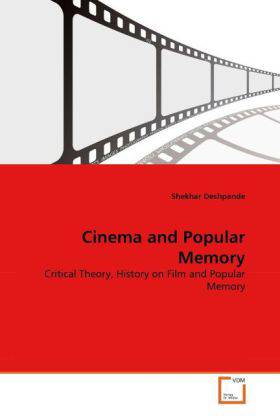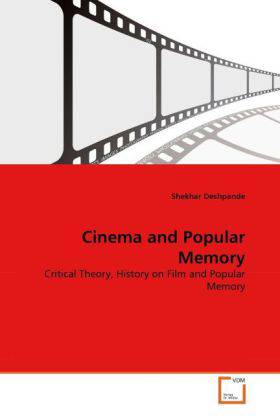
- Afhalen na 1 uur in een winkel met voorraad
- Gratis thuislevering in België vanaf € 30
- Ruim aanbod met 7 miljoen producten
- Afhalen na 1 uur in een winkel met voorraad
- Gratis thuislevering in België vanaf € 30
- Ruim aanbod met 7 miljoen producten
Zoeken
Omschrijving
Michel Foucault introduced the idea that films could deliberately re-write the memory of history that people hold. Cinema has become a large apparatus, with its influence felt far beyond the texts themselves, into the fabric of everyday life. There is logic to this apparatus, which governs how reception and retention of films are shaped. Popular memory is embodied into everyday life, as part of the cinematic apparatus, according to the libidinal structures of desire and available avenues of expression. This book is an examination of how popular memory is shaped and retained under the influence of cinema. It attempts to address the microscopic implications of the theories of discourse and power at the level of subjectivity. Arguing that the work of Julia Kristeva, Pierre Bourdieu, Maurice Merleau-Ponty and Jean-François Lytoard provides a way of understanding the embodied narrative resistance to the powers of the apparatus, this book provides methods of using critical theory for our understanding of the relationships between cinema and popular memory.
Specificaties
Betrokkenen
- Auteur(s):
- Uitgeverij:
Inhoud
- Aantal bladzijden:
- 284
- Taal:
- Engels
Eigenschappen
- Productcode (EAN):
- 9783639312270
- Verschijningsdatum:
- 6/02/2011
- Uitvoering:
- Paperback
- Formaat:
- Trade paperback (VS)
- Afmetingen:
- 152 mm x 229 mm
- Gewicht:
- 417 g

Alleen bij Standaard Boekhandel
+ 155 punten op je klantenkaart van Standaard Boekhandel
Beoordelingen
We publiceren alleen reviews die voldoen aan de voorwaarden voor reviews. Bekijk onze voorwaarden voor reviews.











